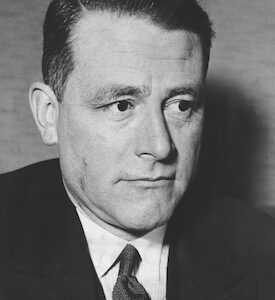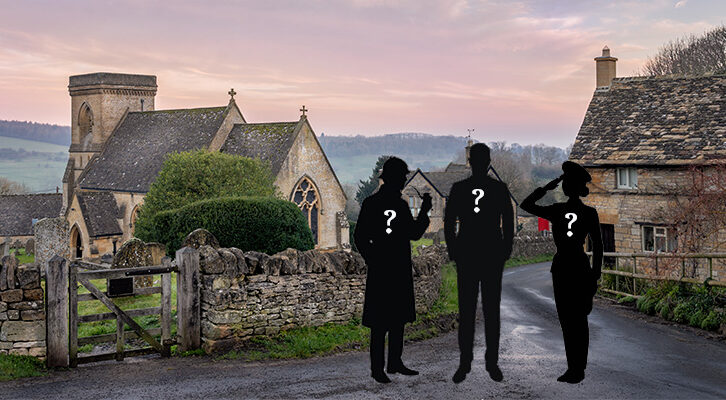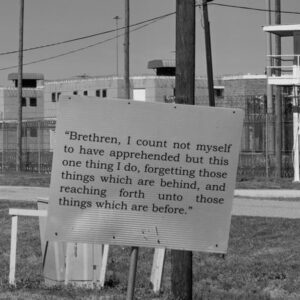
Molly Crabapple: My Life in a Parisian Bookstore
Drawing the World In Shakespeare and Company
The streets of Paris were as familiar as a dream. The city smelled of dog shit and cherry blossoms. Its baroque buildings shimmered the same color as the Seine.
The room I booked was at the Hôtel Saint-Jacques, up eight twisting flights of stairs. The shower was down the hall. On the weekend I wandered through the bird market on the Île de la Cité, scribbling the squawking canaries, then walked for hours through Les Halles and Pigalle, past sex stores and three-card monte games and bakeries luscious with pastries I couldn’t afford. I read books at the Institut du Monde Arabe. Paris was not the postcard cliché I’d read about. It was something better: a raw metropolis, both New York’s opposite and its equal.
I was happy, with a quiet joy that I’d never felt before, a slow and ferocious freedom. Solitude and newness were the twin gifts travel gave me, at the same time it took my context away. When I traveled I became nothing but an eye, soaking up the world. I lost all the dullness of home. I could draw with compulsion and rigor.
* * * *
After a week in the city, I went looking for Shakespeare and Company.
Named for Sylvia Beach’s lost generation hangout, the bookstore on 37 Rue de la Bûcherie had opened its doors in 1951. Since then, it had become legend, not just for its selection of English-language books but also for its hospitality. Over the second-floor archway, the shop’s founder, George Whitman, had painted the words “Be kind to strangers, for they may be angels in disguise.” The store lived by that motto. Shakespeare and Company claimed to have hosted 30,000 travelers on the narrow beds tucked between its bookshelves in the years since it opened. These guests—including writers like Lawrence Ferlinghetti and Anaïs Nin—were known as “Tumbleweeds.”
I wanted more than anything to stay in Paris. The store was the center of the city’s Anglophone community, and I hoped that if I hung out there, I could find some work. Doing what, I didn’t know.
When I got there, at 11 am, the store was closed, its green doors pulled firmly shut. I sat in the courtyard, beneath the cherry trees that were just starting to cry their first blossoms. There was a fountain in front of me, three art nouveau nymphs entwined. I took out my sketchbook and started to draw them. Drawing is always a disruptive act. You produce when you’re expected to consume. When you draw, you are performing quietly, inviting strangers to engage with you. I always saw my sketchbook as a talisman.
The side door opened. An old man hobbled out. He was thin and stooped, wearing a stained velveteen smoking jacket and pajama pants. Beneath a torrent of white hair his face was as lined as a piece of paper that had been crumpled and flattened and crumpled again. Painfully, he picked his way over to me.
I knew it was the owner, George Whitman, though he did not introduce himself. Instead, he peered into my sketchbook. He said nothing for a moment, just stood judging. Then he nodded approvingly.
“You’re in Paris, eh?” he asked.
I stared at him a moment, then nodded back. I’d read that he’d spent the year of 1935 hopping boxcars from Washington DC to Central America, learning hospitality from a tribe in the Yucatan that once nursed him back to health. In the white sunlight, he looked every moment of his 86 years.
“There is no miracle greater than to be a young girl in Paris in the spring,” George told me. He gestured to the bookstore, which was coming awake. A young man in a corduroy jacket unlocked the front doors, then started laying out rows of cheap paperbacks on the sidewalk. George told me that the man was one of the Tumbleweeds. In exchange for their beds, they had only to read a book a day and work an hour a day at the store. George invited me to join them.
“Be my little daughter. I have many little daughters,” he said.
To my astonishment, his intentions were genuinely paternal. I let myself trust him. I left my squalid hotel room and moved into the shop.
* * * *
Shakespeare and Company hid 13 sleeping spaces between its overflowing bookshelves. Some of the beds were boards with thin mattresses on top, propped up by manuscripts. Others were bunks, hidden behind the hundreds of letters George dangled from the walls. An obese cat prowled through the shop, scratching who it pleased.
We woke up each day from the sunlight that spilled through Shakespeare’s bare windows, then waited our turn at the single shower, which hadn’t been washed for many years. Then we headed off to the Café Panis to jostle around the green zinc bar for our coffees. The manager always snuck me cookies, and I smiled at him mutely, too shy to flirt.
The bookstore opened at noon. I worked the cash register, which was not a cash register at all, but rather a ledger and a money box. Like many Tumbleweeds, I made up prices on the spot. Sometimes George staggered downstairs in his stained dressing gown and demanded that we not sell a book at all. There was a small wishing well in the back room, and the Tumbleweeds told tourists fantastical lies about the luck it would bring them if they threw in some francs. When no one was looking, we scooped out the coins and spent them on cheap wine, which we drank by the river.
Dirt coated every surface at Shakespeare and Company. It was brown, fragrant, a mixture of mold, cooking oil, and the dust of decaying books. Sometimes if I slept on a top bunk, cockroaches fell on my face. In the upstairs kitchen, a mold-furred pot was stuffed with rotten soup. For Sunday tea parties, George baked pancakes with rancid flower. Ants drowned in the tea. Yet all that decay only made the store more lovely; the place had all the dark romance of Miss Havisham’s wedding dress.
Tumbleweeds came and went. I shared the upper rooms with a Uighur dissident, a Dutch ballerina, and a slumming British violinist. After work, we sat around drinking. I made friends with an aristocratic Sri Lankan girl studying math at Oxford. After work, we sat around gossiping next to a first edition of Ulysses. She had a delicate little fairy face and chopped her thick hair in a 1930s bob. I remember her smirk fading only once, when a recurring vein disease caused her hands to swell to twice their size. She hid in the back room, crying, then wrapped them in mittens and strutted back out to the front room,
Sometimes, George’s daughter Sylvia Beach Whitman came over from England. She was 20, a little gold Clara Bow, as shy as I was, and once she did a watercolor of a Ballets Russe dancer in my sketchbook. She was George’s heir apparent, but that spring it seemed like the old man would live forever.
I was too intimidated to talk to George at length, then or during my other trips to Paris. But Shakespeare and Company showed me another way to live. The bookstore was a fortress, built from a past at once faded and imagined, when will and eccentricity were all one needed. Shakespeare and Company was as perfect as a stage set, dirt and all. George liked to call it “a little socialist utopia disguised as a bookshop.” Yet, unlike most utopian experiments, it has survived.
I never wondered what deals George made to keep the store afloat. He was a businessman in a dying field, negotiating complicated French bureaucracies, while we kids wandered through his world. We drank and postured and disappeared without notice, thinking our incompetent efforts at the cashbox were enough to pay back George’s gift.
Only later would I realize what a rare thing he had built, and how difficult it must have been to sustain.
I had little but time in that lazy Paris April, so I filled the hours by drawing. I bought myself a leather-bound sketchbook, heavy, marble-edged and so expensive that each time I touched a pen to page, I dreaded fucking it up. In it, I developed a drawing style as finicky as that employed by Victorian travel writers, but instead of a crow quill, I used a cheap, ubiquitous Pilot pen. Every day, I chronicled the store. I drew the award-bedecked poets who seemed too glamorous to speak to after they gave readings. I drew Divanchi and the Dutch ballerina, so they’d think I was worth their time. My ink grew spiraling, compulsive.
One night, we sat around drinking in the upstairs office. The Uighur dissident had made us a vat of ratatouille, and we ate it out of unwashed cups. An American boy recited a poem about Notre Dame. How it must hate all those tourists, the poem read. One day, the cathedral would rise, its flying buttresses stretching out like the limbs of a daddy longlegs. It would stand for a moment, regarding its tormentors. Then it would jump into the Seine.
As he read, I stared out the window. The Seine was black, and the streetlights shone gold where the wind rippled the water. In my sketchbook, I drew every single wave.
From Drawing Blood. Used with permission from Harper Collins. Copyright 2015 by Molly Crabapple.
Molly Crabapple
Molly Crabapple is an artist and writer living in New York City. She contributes regularly to VICE, The New York Times, and many other publications. Her memoir, Drawing Blood, is out now from Harper Collins.



















